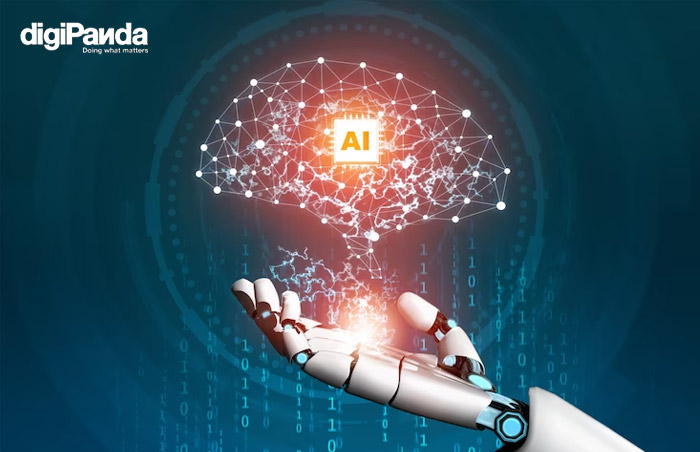Artificial intelligence (AI) has been the talk of the town for the past few years. AI tools have become increasingly popular in various industries, from healthcare to finance to marketing. The future of AI tools looks bright, with new developments and advancements being made every day. In this blog post, we will explore the future of AI tools and what we can expect to see in the coming years.
The Evolution of AI: A Historical and Contemporary Analysis
Artificial intelligence is not a new concept. It has been around for decades, but it was not until recently that it gained mainstream attention. The phrase “artificial intelligence” was first used in the 1950s by computer scientist John McCarthy. Since then, the field has gone through several ups and downs, with periods of hype and disappointment.
In recent years, AI has made significant progress due to advancements in machine learning, natural language processing, and computer vision. Today, AI is used in various applications, including virtual assistants, chatbots, self-driving cars, and more.
Increased Automation:
AI tools have already revolutionized the way we work, but in the future, we can expect to see even more automation. According to a study by Gartner, by 2025, 75% of all enterprise-generated data will be created and processed outside the traditional centralized data centre or cloud. This means that edge computing and AI will become even more important in the future.
Smarter Personalization:
AI tools have already made it easier to personalize content and experiences for users, but in the future, we can expect even smarter personalization. By 2025, it is estimated that the personalization engines of companies will recognize customer intent and context and will be able to deliver personalized experiences that are tailored to each individual user.
Enhanced Natural Language Processing:
Natural Language Processing (NLP) is a key area of AI, and in the future, we can expect to see even more advancements in this area. According to a report by Grand View Research, the global NLP market size is expected to reach USD 35.1 billion by 2025. This growth is driven by the increasing demand for NLP technology in chatbots, virtual assistants, and other AI tools.
Increased Adoption in Healthcare:
AI tools have already made a significant impact in the healthcare industry, and in the future, we can expect to see even more adoption of these tools. According to a report by Accenture, the global market for AI in healthcare is expected to grow from $2.1 billion in 2018 to $36.1 billion by 2025. This growth is driven by the increasing demand for personalized medicine, medical imaging analysis, and drug discovery.
Continued Growth in Robotics:
Robotics is another area where AI tools are having a significant impact, and in the future, we can expect to see even more growth in this area. According to a report by Tractica, the global market for robotics is expected to reach $226.2 billion by 2021. This growth is driven by the increasing adoption of robotics in industries such as manufacturing, healthcare, and logistics.
How AI Tools are Transforming Industries
AI tools are transforming various industries, including healthcare, finance, and marketing.
For example
- In healthcare, AI tools are being used to improve medical imaging analysis, personalized medicine, and drug discovery.
- In finance, AI is now being used for investment analysis, risk assessment, and fraud detection.
- In marketing, AI is being used for personalized content delivery, customer segmentation, and predictive analytics.
These advancements are not just improving efficiency and accuracy but also revolutionizing the way we work and live. AI tools are making it easier for us to access and analyze data, automate repetitive tasks, and make informed decisions.
- In healthcare, AI tools are improving patient outcomes by providing more accurate diagnoses and personalized treatment plans.
- In finance, AI tools are helping companies make better investment decisions and reduce the risk of fraud.
- n marketing, AI tools are enabling companies to deliver more personalized and relevant content to their customers, resulting in higher engagement and conversion rates.
In addition to these industries, AI tools are also transforming the manufacturing industry. For example, AI-powered robots are being used to automate assembly lines and perform complex tasks, reducing labour costs and improving efficiency.
In the transportation industry, self-driving cars and trucks are being developed, which have the potential to revolutionize the way we travel and transport goods.
Overall, AI tools have the potential to transform nearly every industry, creating new opportunities for growth and innovation. However, it is important for companies to approach AI with caution and ensure that ethical considerations are taken into account. As AI tools continue to evolve, it is crucial that we prioritize transparency and accountability to ensure that the benefits of AI are shared by all.
Conclusion
The future of AI tools is bright and full of possibilities. With continued advancements in machine learning, natural language processing, and robotics, we can expect to see even more automation, smarter personalization, and enhanced natural language processing in the coming years.
The adoption of AI tools in industries such as healthcare, finance, and marketing is already transforming the way we work and live, improving efficiency and accuracy, and revolutionizing various sectors. As the potential of AI tools grows, it is crucial for companies to approach it with caution and prioritize ethical considerations to ensure that the benefits of AI are shared by all. We are eager to watch what AI will bring about in the future.
If you’re eager to, contact us today and get your work procedures efficient up to 10x.
